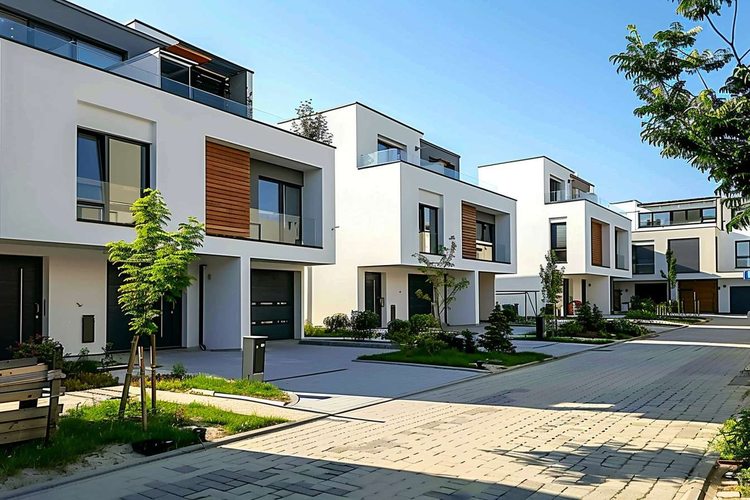What Every Homeowner Should Know About Property Value
Understanding what drives property value is essential for any homeowner, whether you’re thinking of selling, refinancing, or simply investing in your future. This article breaks down the key factors that influence your home’s worth, from location and market trends to renovations and upkeep. By gaining a clear picture of how property values are assessed, you can make smarter decisions to protect and grow your investment with confidence.

What are the primary factors that influence home value?
Several key elements contribute to a property’s overall value. Location is often considered the most crucial factor, as it’s the one thing about a home that can’t be changed. The quality of local schools, proximity to amenities, and neighborhood safety all play significant roles. The property’s size, age, and condition are also major contributors. Additionally, market conditions, including supply and demand, interest rates, and the overall economic climate, can significantly impact home values.
How do location and neighborhood affect property pricing?
Location is paramount in real estate valuation. A property’s worth is heavily influenced by its surroundings. Homes in desirable neighborhoods with low crime rates, good schools, and easy access to amenities like shopping centers, parks, and public transportation typically command higher prices. Proximity to employment centers can also boost value. Conversely, factors like high crime rates, poorly performing schools, or nearby industrial areas can negatively impact property values.
What role do renovations and maintenance play in home value?
Renovations and regular maintenance can significantly enhance a property’s value. Updated kitchens and bathrooms often yield the highest returns on investment. Other valuable improvements include adding energy-efficient features, upgrading the home’s exterior (curb appeal), and finishing basements or attics. However, it’s crucial to note that not all renovations add equal value. Overimproving for the neighborhood or making highly personalized changes may not yield the expected return. Regular maintenance is equally important, as neglected repairs can lead to more serious and costly issues that decrease home value.
How do market trends impact real estate values?
Market trends play a substantial role in determining property values. In a seller’s market, where demand outpaces supply, home prices tend to rise. Conversely, in a buyer’s market with excess inventory, prices may stagnate or decline. Economic factors such as interest rates, employment rates, and overall economic health also influence market trends. For instance, low interest rates can make homeownership more affordable, potentially driving up demand and prices. Additionally, broader societal shifts, like increased remote work opportunities, can affect where people choose to live and, consequently, impact property values in different areas.
What unique factors impact home values in the United States?
In the United States, several unique factors can influence home values. The country’s diverse geography means that natural disasters like hurricanes, earthquakes, or floods can significantly impact property values in certain regions. Zoning laws and local regulations can affect what can be built or how properties can be used, influencing their value. The presence of good public schools is particularly important in the U.S., often driving up home prices in districts with high-performing schools. Additionally, the U.S. has a strong cultural emphasis on homeownership, which can create localized “hot markets” where prices rise rapidly.
How can homeowners accurately estimate their property’s value?
Homeowners have several options for estimating their property’s value. While professional appraisals provide the most accurate assessments, there are other methods available:
-
Online Home Value Estimators: Many real estate websites offer free estimated valuations based on recent sales data and public records.
-
Comparative Market Analysis (CMA): Real estate agents can provide a CMA, comparing your home to similar properties that have recently sold in your area.
-
Home Value Estimator Tools: Some banks and mortgage lenders offer online tools to estimate home values.
-
Professional Appraisal: For the most accurate valuation, particularly for refinancing or selling, a professional appraisal is recommended.
| Estimation Method | Provider | Cost Estimation |
|---|---|---|
| Online Estimator | Zillow | Free |
| Online Estimator | Redfin | Free |
| CMA | Local Real Estate Agent | Often Free (as a service to potential clients) |
| Professional Appraisal | Licensed Appraiser | $300 - $600 |
Prices, rates, or cost estimates mentioned in this article are based on the latest available information but may change over time. Independent research is advised before making financial decisions.
Understanding the factors that influence your home’s value empowers you to make informed decisions about your property. Whether you’re considering renovations, refinancing, or simply curious about your home’s worth, keeping these factors in mind will help you navigate the complex world of real estate valuation. Remember, while general trends and online tools can provide useful insights, local market conditions and unique property features will always play a significant role in determining your home’s true value.




